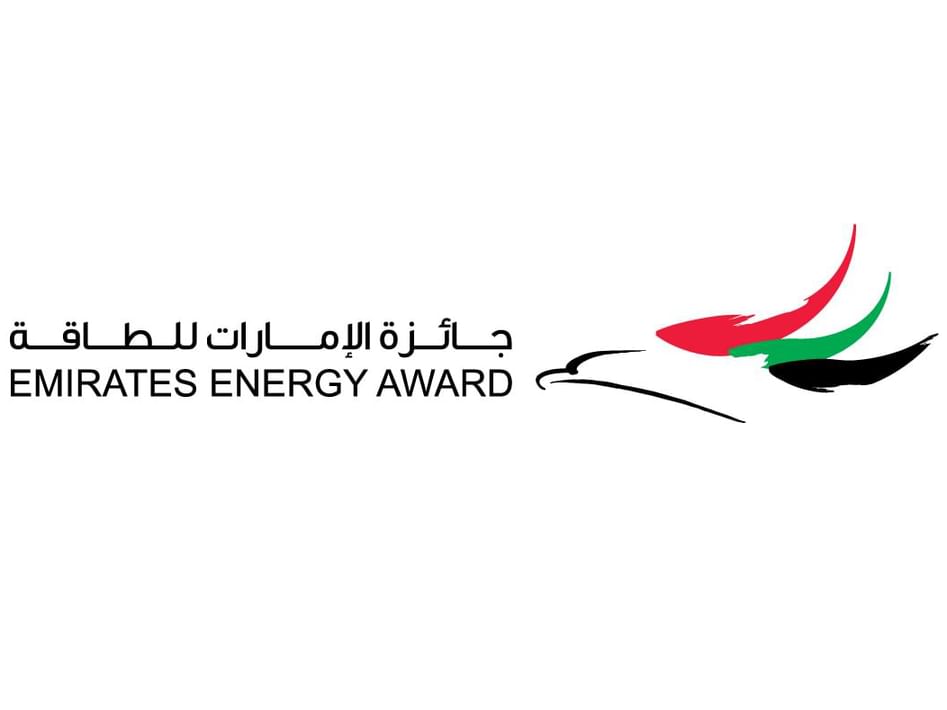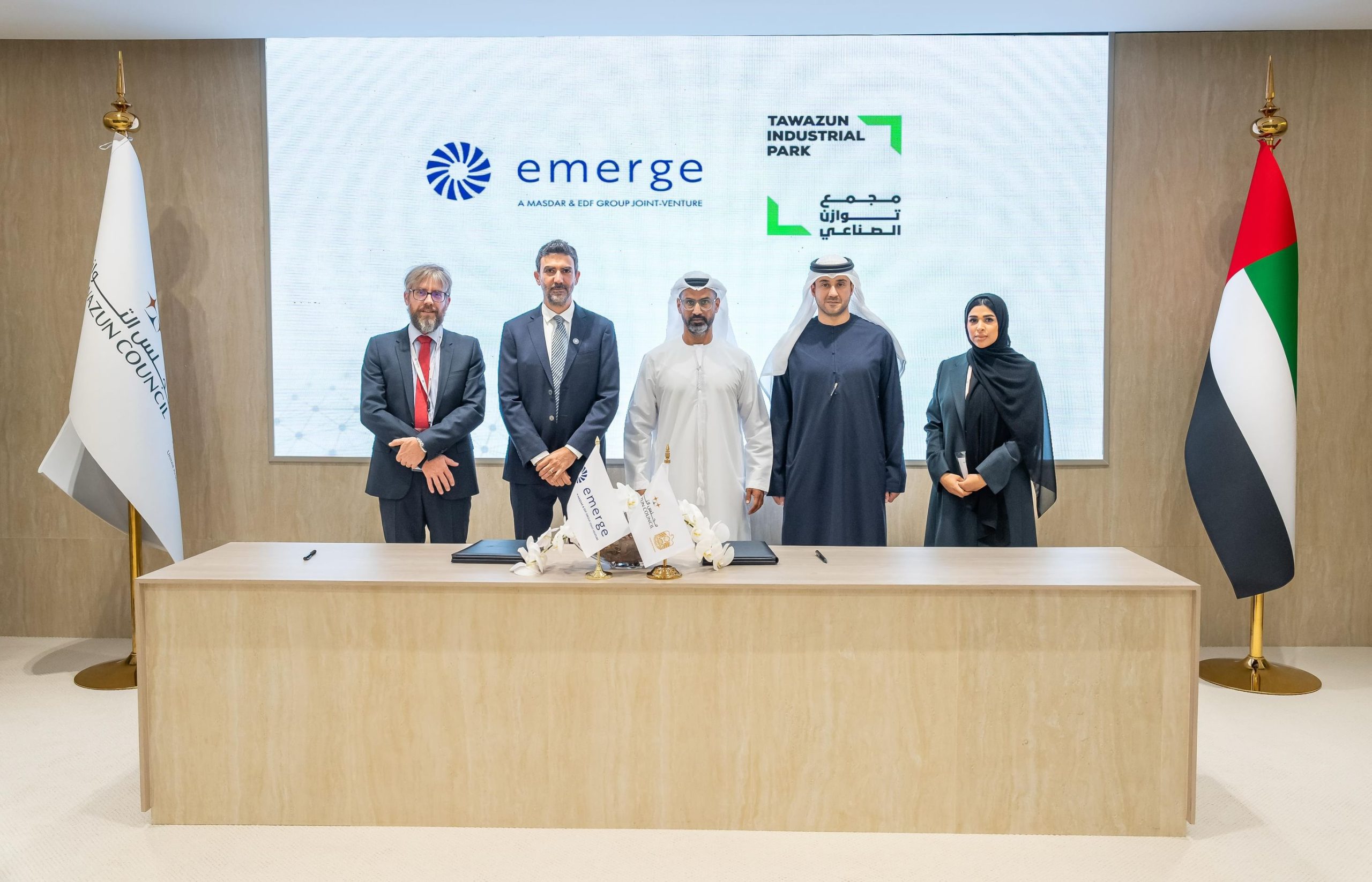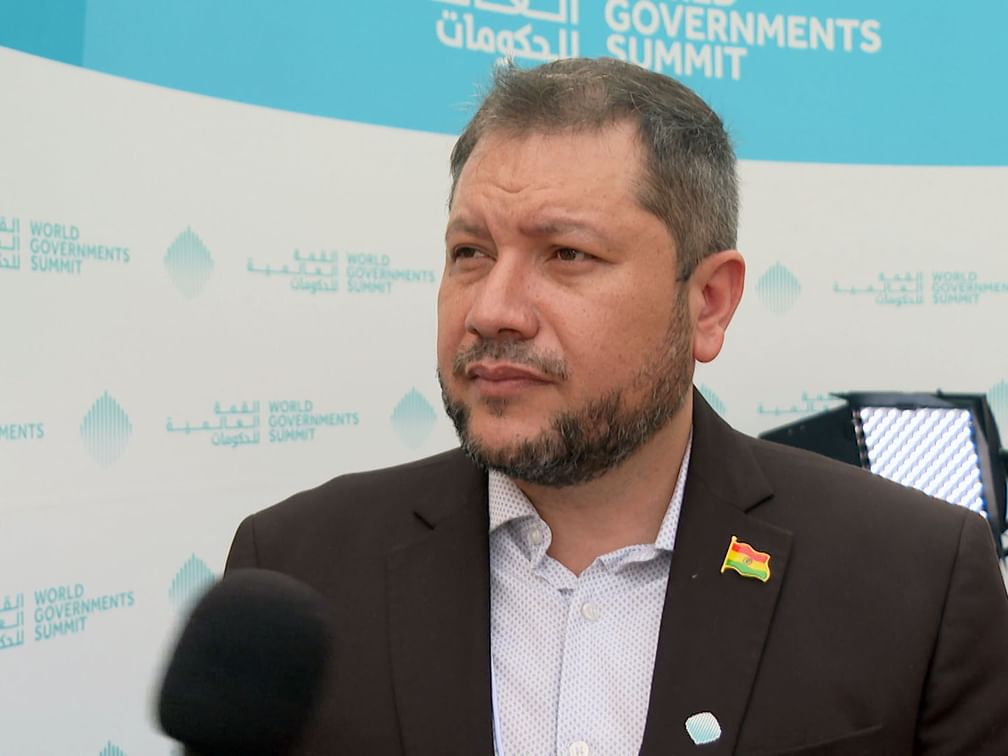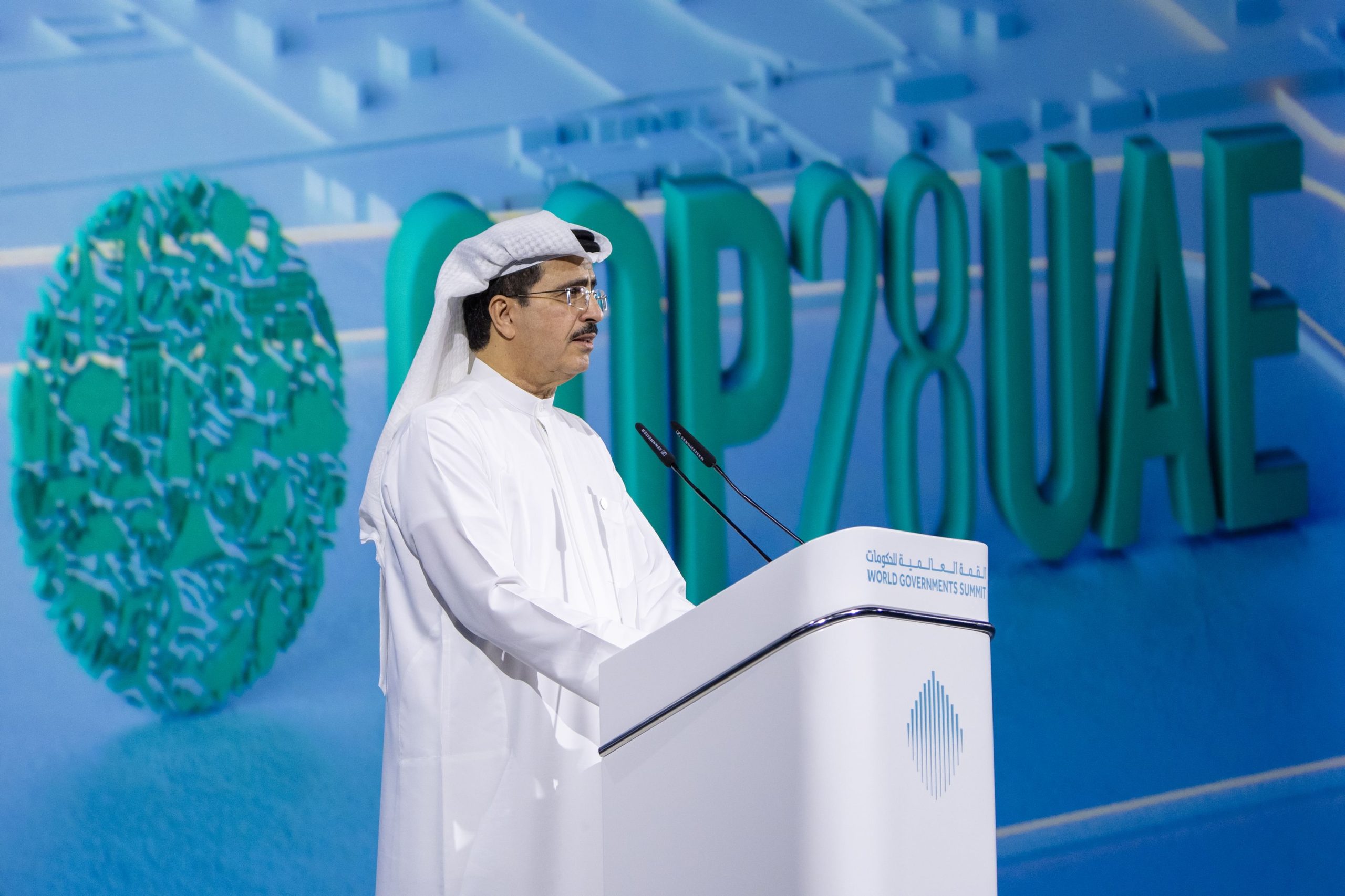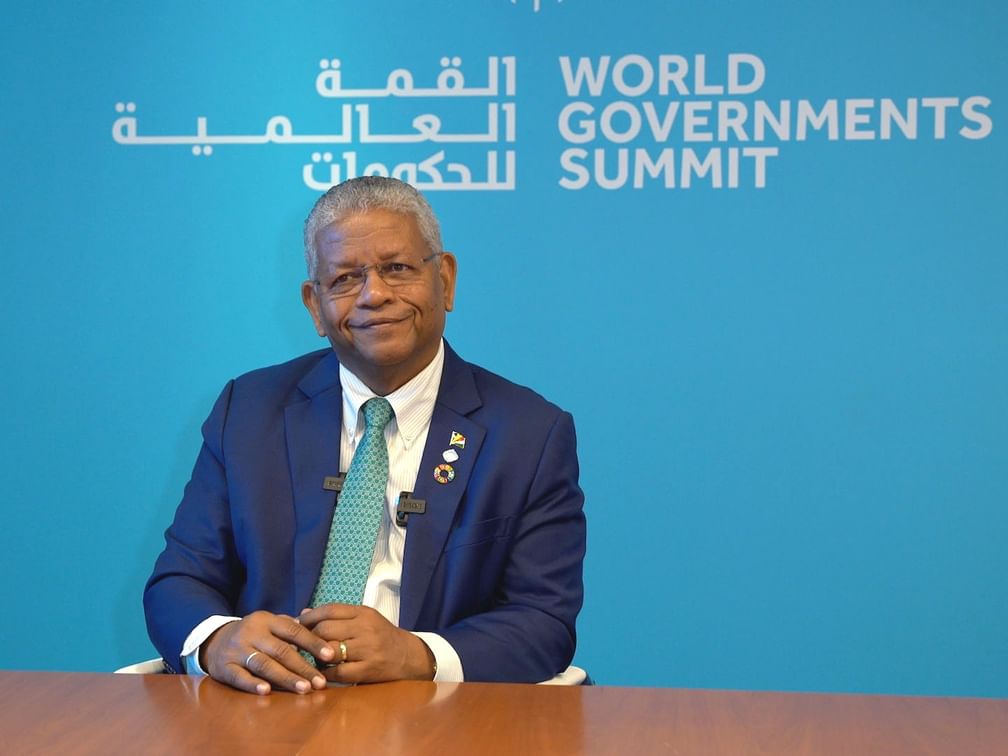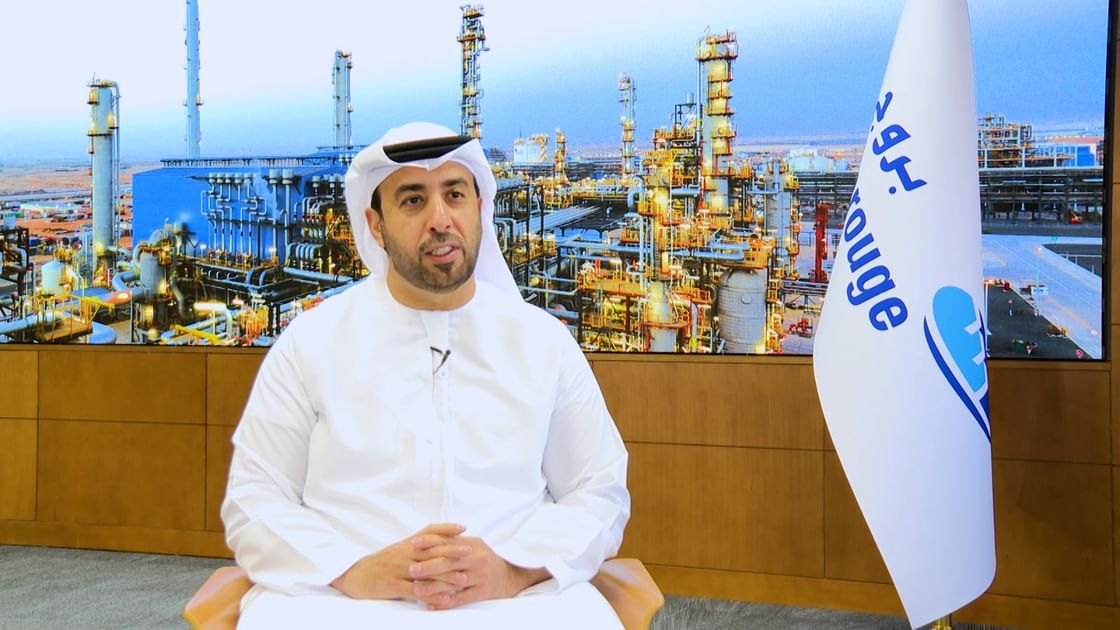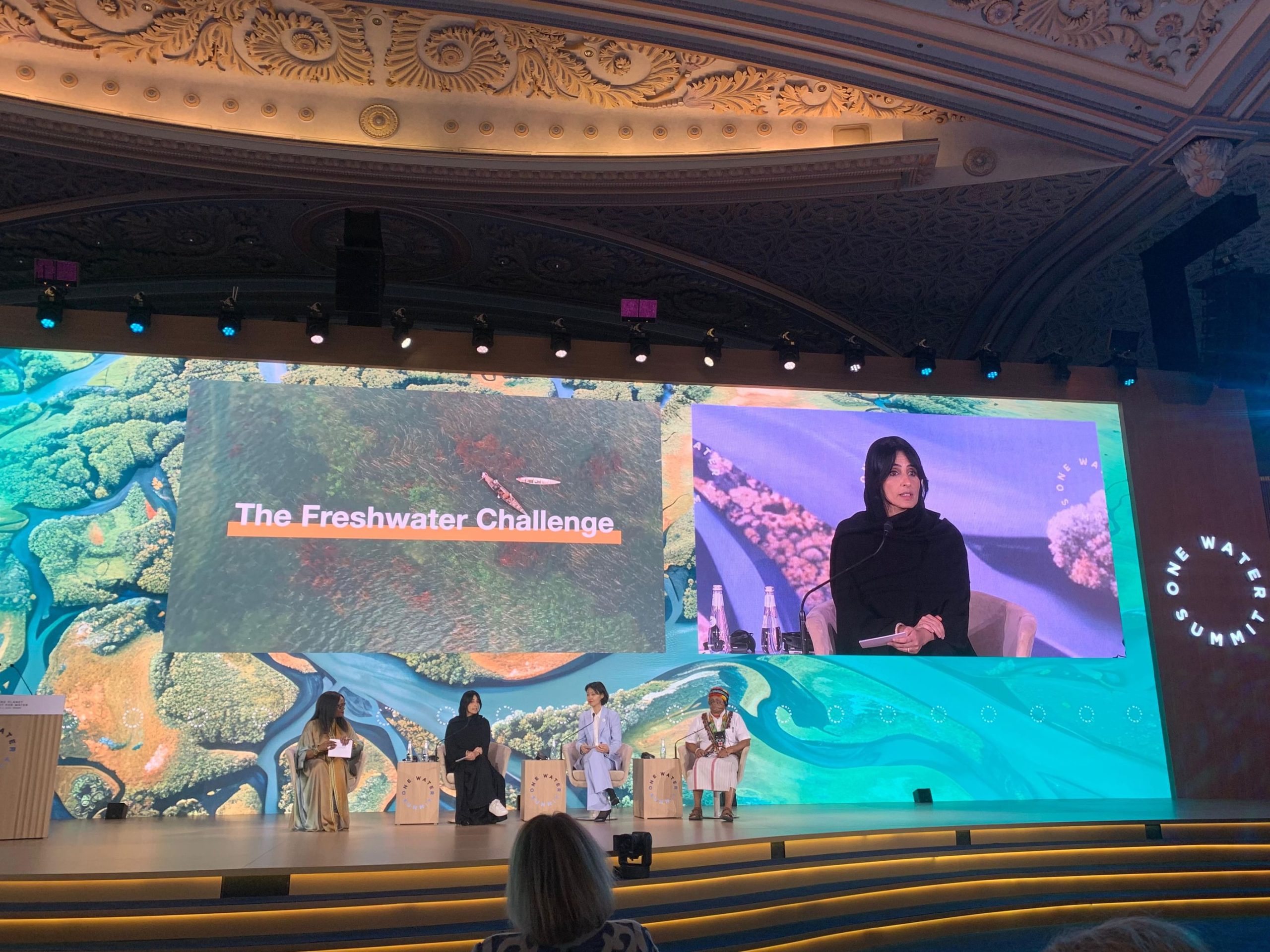Razan Khalifa Al Mubarak, President of the International Union for Conservation of Nature (IUCN), highlighted the critical role of freshwater ecosystems in addressing global sustainability challenges while speaking at the high-level One Water Summit in Riyadh, Saudi Arabia.
Her remarks came as the Freshwater Challenge, the largest global effort to restore rivers and wetlands, was recognised as an official Water Outcome of COP28, hosted in the UAE.
With the UAE set to co-host the UN Water Conference with Senegal in 2026, President Al Mubarak underscored the need for collaborative action to protect and restore freshwater ecosystems worldwide.
She also celebrated the growing international commitment to the Freshwater Challenge, which aims to restore 300,000 km of degraded rivers and 350 million hectares of wetlands by 2030.
The Freshwater Challenge was recognised as an official Water Outcome of COP28 in the UAE, highlighting its pivotal role in restoring freshwater ecosystems globally.
President Al Mubarak welcomed Australia and Kazakhstan as new members of the Freshwater Challenge and encouraged other countries to join the initiative.
“Together we are truly amazed at the commitment countries have made to date in joining and implementing the Challenge,” she said at the summit, which included the participation of Heads of States and Presidents from Saudi Arabia, France, Iraq, Kazakhstan, and Morocco, as well as the leaders of key global funders including the World Bank and the Global Environment Facility (GEF).
The Challenge has 50 State members, along with the European Union.
During the summit, the GEF CEO Carlos Manuel Rodriguez announced the US$5 million investment in the Freshwater Challenge, which will accelerate action by addressing some of the most critical needs and challenges identified by the Member countries.
“The GEF is proud to announce an investment of US$5 million into the Freshwater Challenge as this critical country-led initiative will be key to achieving the 30×30 targets in the Global Biodiversity Framework,” said Rodriguez.
He added that the GEF contribution will support targeted pilots and promote innovative metrics and communication efforts, including with youth, local communities and Indigenous People.
Along with the contribution from the GEF International Waters focal area, over US$10 million in co-financing has already been identified from a broad range of actors, including the private sector, NGOs, and member countries.
In the coming months, the Freshwater Challenge will seek to increase the amount of co-financing and work with member countries to define project details.
The One Water Summit took place on the sidelines of the 16th Conference of the Parties to the United Nations Convention to Combat Desertification in Riyadh.
It’s the third and final COP this year for the three Rio Conventions, which along with UNCCD include the UN Framework Convention on Climate Change and the UN Convention on Biological Diversity.
This landmark event underscores the UAE’s position as a global leader in fostering partnerships and driving innovative solutions for freshwater conservation.
It was at the last Water Conference in 2023 that the Freshwater Challenge was launched as a country-led initiative supported by IUCN, Conservation International, The Nature Conservancy, Wetlands International, the Secretariat of the Ramsar Convention on Wetlands, the UN Environment Programme, and UNCCD. This aligns with the UAE’s vision for sustainable development and its leadership in advancing global water security.
“Water is a global challenge, but also a local issue. We need to empower local communities and civil society organisations to take better care of freshwater ecosystems. By collaborating effectively with governments and businesses that rely heavily on water, we can maximise skills and resources to restore these critical ecosystems,” said Razan Al Mubarak.
Wetlands and other freshwater systems are significantly degraded, with 87% of wetlands having been lost globally over the last 300 years.
Healthy freshwater ecosystems such as wetlands are key to preventing and mitigating floods and droughts. They are central to tackling the linked climate and nature crises and to ensuring sustainable economic development. They are also efficient tools to store carbon and provide water filtration and storage.
During her remarks, the IUCN President highlighted progress made by a number of countries as part of the Freshwater Challenge.
She noted that Liberia has incorporated wetlands into its nationally determined contributions as part of the UNFCCC; that Ecuador has established three new Water Protection Areas amounting to 100,000 hectares; and that Cambodia has created a small-grant programme to help restore flooded forests.
“Water is something most of us take for granted—we see it as a commodity for cooking, bathing, industry, and even removing waste. But water is much more than that. It is life itself. Water is nature, and it must be managed and cared for as an essential ecosystem, not merely as a resource to be traded or consumed,” said Al Mubarak.
Al Mubarak also said that countries should join the Challenge and endeavour to put rivers, lakes, wetlands, and peatlands into their national plans and strategies under the three Rio Conventions.






